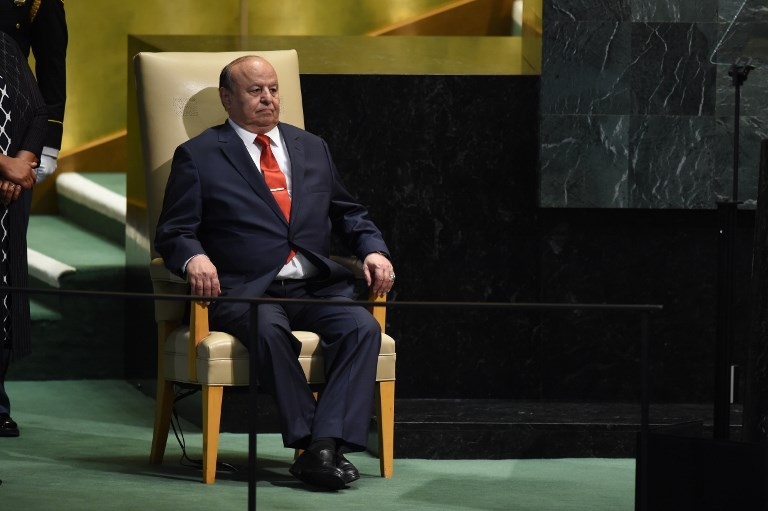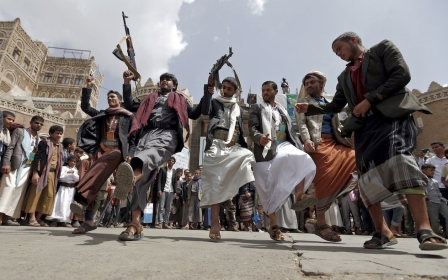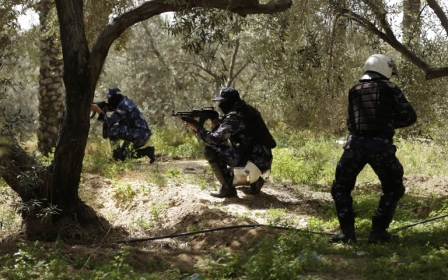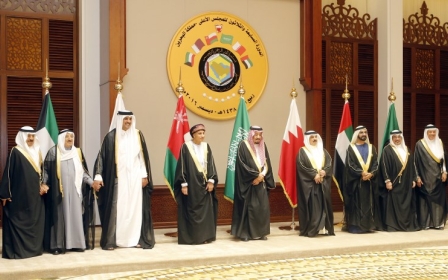Arabic press review: Yemen's Hadi surrenders control for five minutes with Salman

Forced hand for Hadi?
Yemen President Abd Rabbuh Mansour Hadi had to agree to allow Saudi Arabia and the United Arab Emirates to help run his country in order to get a meeting with King Salman last April, Yemeni sources have told news site Arabi21.
Hadi's request for the meeting with Salman came after he fired two officials in Aden close to the Emiratis - Aden governor Aidarus al-Zubaidi and Hani Ali bin Braik, a minister of state and general commander of the forces of the UAE-run Security Belt.
As Middle East Eye first reported, Hadi sacked the two after struggles with the UAE over who controlled Aden airport. Just weeks before, Hadi had been refused landing permission at the airport.
Then the Emiratis refused to allow the plane of Brigadier General Muhran Qabati, the commander of the Fourth Brigade which acts as a presidential bodyguard, to leave the airport.
At the time, MEE reported that the Saudis had acted as mediators, trying to calm Hadi and arranging meetings between him, then Saudi defence minister and Deputy Crown Prince Mohammed bin Salman, and Crown Prince of Abu Dhabi Mohammed bin Zayed.
Sources now tell Arabi21 that after the airport fallout and the sackings, Hadi repeatedly asked for a meeting with King Salman and was rejected. Then a Saudi official told him he could have a meeting if he signed a paper agreeing to "the formation of a tripartite committee" chaired by Yemen, with the UAE and Saudi Arabia as members, "to participate in the management of the situation of his country".
Hadi signed the agreement and was then transferred to the king’s residence and was told that the meeting would last for only five minutes because the king was busy, according to Arabi21.
But the meeting ended up lasting around 55 minutes, after which Hadi and his office manager, Abdullah al-Alimi, were transferred to a room with a sofa bed, two armchairs and no blankets for 24 hours.
Hadi, the sources confirmed to Arabi21, is banned from returning to Aden and remains in Riyadh.
Syrians will go home after war: Jordanian minister
Jordan will not permanently resettle Syrian refugees and instead plans to send them back once the war is over, Mohammad al-Momani, the kingdom's minister of state for media affairs, said, according to Jordanian newspaper al-Ghad.
Momani said that it is the duty of Jordan and the international community to help Syrian refugees over the humanitarian disaster in their country until the situation stabilises. But then they will return to their homes.
Jordan's primary concern, he was reported as saying, is with the kingdom's national interests in maintaining security and stability for its people and institutions.
US to designate Brotherhood as terrorist group, says academic
An Egyptian sociologist has told Egyptian daily Al-Mesryoon newspaper that he believes the US government will soon designate the Muslim Brotherhood as a terrorist group.
The decision, predicted Saad Eddin Ibrahim, who is also the director of the Ibn Khaldun Center for Development Studies, will be made before the end of the year. “Many Arabic states have already listed MB in their terrorist groups’ lists, which will speed up the decision in US," he told the paper.
“Newspapers reports and official statements in the US and pressures from Arab countries, all of that are factors indicate that the decision will be issued in Washington soon."
* Arabic press review is a digest of reports that are not independently verified as accurate by Middle East Eye.
New MEE newsletter: Jerusalem Dispatch
Sign up to get the latest insights and analysis on Israel-Palestine, alongside Turkey Unpacked and other MEE newsletters
Middle East Eye delivers independent and unrivalled coverage and analysis of the Middle East, North Africa and beyond. To learn more about republishing this content and the associated fees, please fill out this form. More about MEE can be found here.




